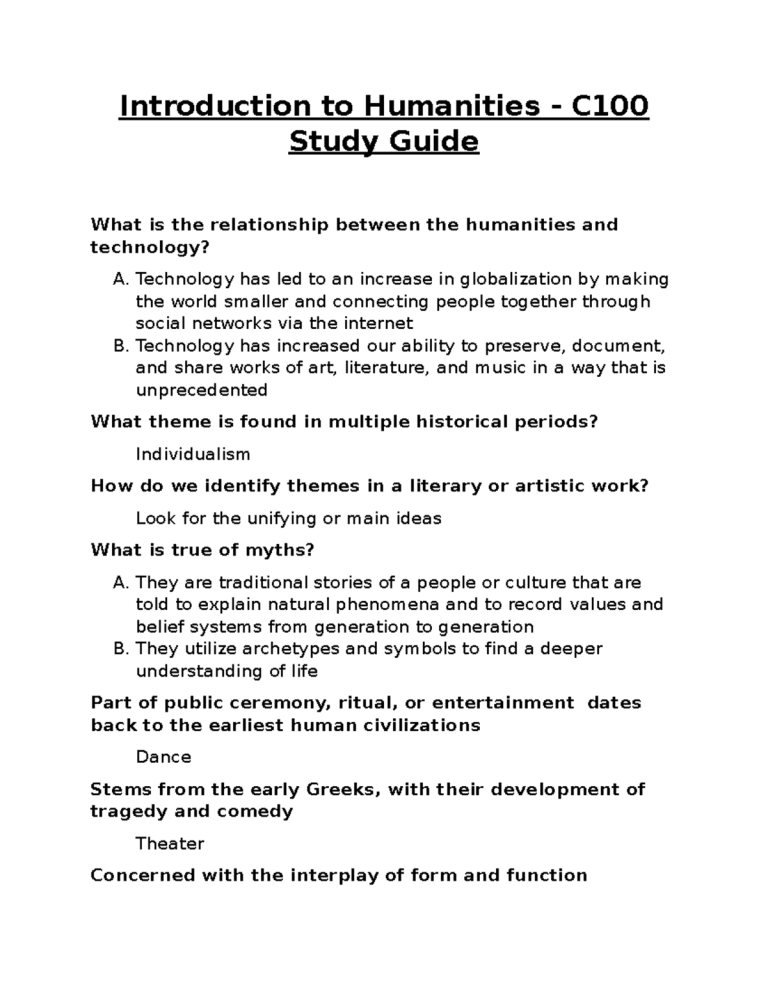Palliative care is a vital aspect of healthcare that focuses on providing relief from the symptoms and stress of serious illness, aiming to improve the quality of life for patients and their families. This compassionate approach is central to innovative projects like “Night Side Songs,” a musical inspired by the experiences of cancer patients and the emotional journeys they endure. Developed with insights from Susan Block, a specialist in palliative care, the production seeks to illuminate these often-unspoken experiences through the power of music. By using elements of storytelling, this musical delves into the heart of cancer patient experiences, fostering a deeper understanding of the complexities surrounding illness and dying. As societal conversations around palliative care grow, productions like this one help break down barriers and invite open dialogue on difficult topics, including death, grief, and healing.
When discussing end-of-life care, one might consider alternative terms such as supportive care, comfort care, or terminal care, all of which emphasize the importance of addressing both physical and emotional suffering. These terms reflect a holistic approach to managing serious health conditions, resonating with the themes presented in engaging narratives like the musical “Night Side Songs.” Here, the focus is not only on the medical aspects but also on the emotional landscapes navigated by patients and their loved ones. As stories unfold through characters like Yasmine, a young cancer patient, audiences can explore the nuanced experiences of those facing terminal illness. Such artistic expressions serve as significant tools for enhancing public awareness and understanding of palliative care concepts.
The Emotional Impact of Palliative Care
Palliative care plays a crucial role in assisting patients through the complexities of serious illnesses. With a focus on relieving symptoms and enhancing quality of life, it addresses not only the physical needs of patients but also the emotional and psychological aspects of health care. This holistic approach is essential for individuals battling cancer, such as Yasmine in ‘Night Side Songs.’ Through dialogues and artistic expressions, the emotional weight borne by patients and their families is brought to the forefront, fostering deeper connections and understanding.
Susan Block, a pioneer in palliative care, emphasizes the importance of open discussions about death and dying. She believes that engaging patients in conversations about their feelings can alleviate the isolation that often accompanies terminal illness. This emotional support system, integral to palliative care, offers patients a safe space to express concerns and fears, thus preparing them and their families for the realities they face. In musicals like ‘Night Side Songs,’ these themes are highlighted, showcasing how art can reflect and enhance the palliative care experience.
Exploring ‘Night Side Songs’ and Its Themes
‘Night Side Songs’ delves into the nuanced experiences of cancer patients, shedding light on their struggles and triumphs. Inspired by Susan Sontag’s observation that “illness is the night side of life,” the musical intricately weaves together narratives from patients, caregivers, and medical professionals. This rich storytelling resonates with audiences, bridging the gap between the clinical and expressive sides of living with cancer. Through its poignant lyrics and heartfelt compositions, the show not only entertains but also educates viewers about the realities faced by those in palliative care.
Musicals have the power to address serious themes with grace, and ‘Night Side Songs’ is no exception. By framing the conversation around death and dying within a musical format, the Lazour brothers invite audiences to reflect on their own experiences with illness and loss. The incorporation of music, as Block highlights, serves as an emotional conduit, allowing people to engage with difficult topics like palliative care in an accessible way. This innovative approach to storytelling not only brings traditional theatrical elements into discussions about serious health issues, but also fosters community and shared understanding.
The Role of Music in Palliative Care
Music has long been recognized for its therapeutic properties, particularly within palliative care settings. It serves as a powerful tool for expression and emotional release, often helping patients articulate feelings that words may fail to capture. In ‘Night Side Songs,’ music is utilized not just as an entertainment medium, but as a means to engage patients and their families in meaningful conversations about their experiences. The participatory aspect that Block mentions—where audiences are invited to sing along—creates a collective atmosphere of support and understanding.
When patients encounter the emotional turmoil caused by their illness, music can provide comfort and solace. It allows them to connect with memories, foster relationships, and even process grief. Susan Block’s involvement in ‘Night Side Songs’ underscores the integral relationship between palliative care and the arts, illustrating how music can alleviate suffering and enhance well-being. As audiences resonate with the heartfelt compositions, they are more likely to engage with the underlying themes of mortality and healing, promoting a richer discussion around the realities of life with cancer.
Susan Block’s Influence on Arts in Medicine
As a pioneering figure in the integration of arts and medical practice, Susan Block’s contributions have significantly shaped the narrative surrounding palliative care. Her involvement in projects like ‘Night Side Songs’ showcases the importance of incorporating artistic expressions in medical settings. By collaborating with creators and encouraging the development of works that address serious health issues, she has paved the way for improved patient experiences. The blend of healthcare and art can create a unique environment conducive to healing.
Block’s revolutionary approach not only enhances the understanding of cancer patient experiences but also brings attention to the significance of compassionate care in medicine. By supporting creative endeavors that foster open dialogue, she aims to destigmatize topics surrounding death and illness. In doing so, Block inspires both medical professionals and artists to collaborate in exploring the depths of the human condition, ultimately improving the overall quality of care for patients in palliative situations.
Engagement and Community in Palliative Settings
The societal conversation surrounding death and dying has historically been shrouded in silence, leading to isolation for many patients. Block’s insights highlight the need for community engagement within palliative care, where patients, families, and caregivers can share their experiences and find mutual support. By inviting members of the audience to participate in musical performances, ‘Night Side Songs’ confronts this silence, allowing attendees to explore their feelings and connect over shared experiences. This creates a sense of belonging, pivotal for those navigating serious illnesses.
Moreover, fostering community in palliative care settings encourages individuals to confront their fears and anxieties openly. The emotional support derived from shared artistic experiences can greatly enhance the healing journey. As Block illustrates, when people allow themselves to engage in conversations about death—whether through music, art, or direct dialogue—they build stronger connections that ultimately benefit everyone involved. This shared vulnerability can reduce the stigma of expressing grief or fear, empowering patients to live their remaining days with dignity and purpose.
Importance of Accurate Representation in Arts
In ‘Night Side Songs,’ the Lazour brothers sought Susan Block’s expertise to ensure authentic representation of the cancer patient experience. This commitment to accuracy is crucial when presenting sensitive topics, as misrepresentation can lead to misunderstanding and undervaluation of the realities faced by those with terminal conditions. Block’s guidance helps shape the narrative, ensuring that the struggles and aspirations of patients resonate deeply with audiences, promoting empathy and awareness.
Accurate representation in arts not only honors the lived experiences of patients but also educates the wider public about the complexities of illness and the palliative care process. By illustrating the multifaceted aspects of cancer treatment, including the emotional and social dimensions, ‘Night Side Songs’ challenges preconceived notions and inspires deeper conversations. As seen through Block’s advocacy, such projects are vital in reshaping the way society views death and dying, ultimately advocating for more compassionate care approaches.
Breaking the Silence: Conversations on Death
One of the most profound themes addressed in the context of palliative care, as highlighted by Susan Block, is the pervasive ‘conspiracy of silence’ surrounding death. Patients often feel a need to shield their loved ones from their fears and anxieties, leading to isolation and unexpressed emotions. ‘Night Side Songs’ confronts this taboo by showcasing the struggles and triumphs associated with illness, opening up dialogue that is often avoided in personal and public spheres.
Encouraging conversations about death not only validates the experiences of patients but also provides families with the tools to navigate this challenging journey together. By choosing to engage openly, individuals can foster an environment where feelings can be expressed freely, allowing for healing and understanding. Art, and specifically works like ‘Night Side Songs,’ plays a pivotal role in serving as a catalyst for these discussions, enabling both patients and families to reconcile with difficult emotions surrounding illness.
Reflections on End-of-Life Care
As palliative care continues to evolve, reflections on end-of-life care become increasingly important. Susan Block’s journey through the field has highlighted the significance of addressing the emotional and psychological dimensions of dying. Musicals like ‘Night Side Songs’ contribute to these reflections, presenting relatable narratives that resonate with individuals experiencing similar situations. By portraying authentic patient experiences, audiences are invited to reflect on their beliefs and values regarding death.
Such reflections can lead to an improved understanding of what constitutes quality end-of-life care. Within the context of palliative care, many discover that it is not merely about extending life, but about enhancing the quality of the time that remains. By promoting acceptance and dignity, these artistic narratives inspire both patients and families to prioritize open conversations about their experiences, ultimately shaping the future of compassionate care.
Navigating Grief through Music and Art
Navigating grief is a significant aspect of both palliative care and the experience of watching ‘Night Side Songs.’ Art offers a pathway for individuals to express their sorrow and connect with the shared realities of others. Block recognizes that music serves an essential role in this process, allowing patients and their families to engage with their emotions in a constructive manner. As they witness performances that depict the complexities of illness and loss, audiences can find validation and understanding of their grief.
Moreover, creative expressions such as those found in ‘Night Side Songs’ provide comfort and solace to individuals embroiled in their own battles with grief. The ability to see one’s experiences reflected in art can be immensely therapeutic, allowing for introspection and emotional healing. As Block and the Lazour brothers have demonstrated, the crossroads between palliative care and artistic expression can become a powerful vehicle for processing loss and fostering resilience among those impacted by cancer.
Frequently Asked Questions
What is palliative care and how does it help cancer patients?
Palliative care is a specialized medical approach aimed at providing relief from the symptoms and stress of serious illness, including cancer. It focuses on improving the quality of life for both patients and their families through compassionate care. This includes pain management, emotional support, and assistance with navigating treatment options, making it an essential part of cancer patient experiences.
How does music therapy contribute to palliative care for cancer patients?
Music therapy in palliative care, such as in programs like ‘Night Side Songs,’ offers therapeutic benefits that help alleviate stress and anxiety for cancer patients. Engaging with music can facilitate emotional expression, create a sense of connection, and provide comfort during difficult times, enhancing the overall quality of life during end-of-life care.
What role does Susan Block play in advancing palliative care?
Susan Block is a pioneering palliative care specialist who has significantly contributed to the field, especially in the context of cancer care. As the founding chair of the Department of Psychosocial Oncology and Palliative Care, she advocates for integrating palliative care into cancer treatment, ensuring patients receive comprehensive support that addresses their emotional, psychological, and physical needs.
What can one expect from a musical like ‘Night Side Songs’ in terms of palliative care themes?
‘Night Side Songs’ is a unique musical that explores the rich, emotional landscape of cancer patient experiences, discussing death and dying in an engaging way. By blending music with poignant storytelling, the show aims to foster open conversations about end-of-life issues, showcasing how palliative care can offer hope, connection, and understanding during challenging times.
Why is it important to discuss death and palliative care openly?
Open discussions about death and palliative care are crucial as they help reduce the stigma and fear surrounding these topics. As Susan Block emphasizes, conversations within the community can lead to deeper understanding and shared healing for patients, families, and caregivers, ultimately enhancing the effectiveness of palliative care in managing emotional and psychological burdens.
| Key Points | Description |
|---|---|
| Susan Block’s Role | Palliative care specialist advising on ‘Night Side Songs’ musical. |
| Musical Theme | Focuses on the experiences of cancer patients, caregivers, and medical professionals around end-of-life care. |
| Inspirational Source | Inspired by Susan Sontag’s observation that ‘illness is the night side of life.’ |
| Audience Engagement | Intimate theater setting encourages audience interaction and participation in singing along. |
| Cultural Impact | Aims to break the silence about death and dying, fostering community discussions. |
| Future of Palliative Care | Highlights the evolution and importance of palliative care in conversations about serious illness. |
Summary
Palliative care plays a crucial role in aiding seriously ill patients and their families, fostering open discussions about death and the emotions surrounding it. The recent musical ‘Night Side Songs’, designed with input from palliative care expert Susan Block, not only enriches the narrative around end-of-life experiences but also encourages audiences to engage with these often-taboo subjects more openly. By addressing the delicate balance of hope and uncertainty in illness, this production exemplifies the importance of palliative care in our healthcare system, pushing us to confront our collective fears and fostering a supportive community.




